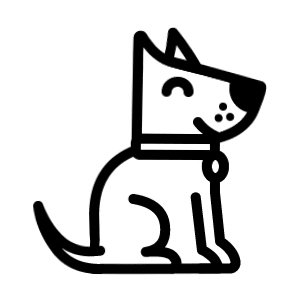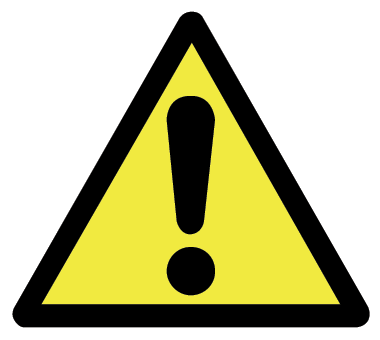Poisons & Household Dangers
Why would my pet be poisoned?
Unfortunately, cats and dogs are not uncommonly poisoned by products in the home – some of these might be expected to be poisonous whereas there are others which are harmless to humans and so can pose unexpected dangers to our pets.
Dogs are not infrequent victims of poisoning due to their scavenging nature, whereas cats are rather more picky about what they eat. However, cats do occasionally eat things which are bad for them. In addition, well-meaning owners will occasionally accidentally give poisonous products to their pets without realising the potential implications.
WHAT SHOULD I DO IF I SUSPECT MY PET HAS EATEN A POISONOUS PRODUCT?
Should you suspect your pet has eaten something it should not have, the first thing to do is contact your veterinary surgeon. They will let you know whether action is required.
Some substances require swift action to make the pet sick whilst with others it is important that the substance is not vomited back up because this could make the situation worse. In some cases food impairs absorption and in others a meal will speed the up-take into the body causing increased toxic effects.
Your pet may require supportive treatment such as intravenous fluids. If your pet has eaten a drug or chemical please try to work out how much of the product was left in the packet and always try to bring any packaging with you to the surgery – this is very useful in helping the vet to work out if a toxic dose has been consumed. If your pet has been sick it is important to note whether there is any of the product in the vomit.
WHAT PRODUCTS CAN CAUSE POISONING?
Below is a list of common but sometimes unexpected poisons:
Chocolate is a very common cause of poisoning in dogs. Chocolate contains a chemical called theobromine which is very toxic to dogs as their livers are not able to detoxify it. Most cases of chocolate poisoning occur at Christmas and Easter when gifts are not safely put away. Dogs will also raid handbags! Better quality chocolate has a higher cocoa content and therefore contains higher levels of theobromine and so is more toxic. Dogs with chocolate poisoning may vomit, start to tremble and become hyperactive. Their heart starts beating very quickly and in severe cases seizures and death can occur. Should the victim survive the short term effects, the liver can suffer from long-term damage.
Recently, there have been health warnings about cocoa bark matting and cocoa shells which are sometimes used as ornamental garden mulch – some dogs that have eaten these due to their attractive smell have suffered theobromine poisoning as a result.
The high levels of caffeine in coffee can also be toxic to dogs. Take care how you dispose of coffee grounds from coffee makers. The clinical signs are similar to chocolate poisoning.
A fairly recent and surprising toxin is one found in grapes. Toxins in this fruit have caused renal failure in some dogs. Again this is most common around Christmas when cakes and puddings are loaded with dried fruit, but fresh grapes can also cause these problems.
Another potentially toxic product which can be ‘stolen’ from hand bags is chewing gum. The sugar substitute xylitol which is found in sugar-free gums can cause a massive release of insulin in dogs. This can cause the blood sugar levels to drop very low, resulting in weakness, seizures and even death. Swift action is required to stabilise these patients.
Ethylene Glycol is a chemical found in Antifreeze and similar products. Unlike most poisons which are bitter, it has a sweet taste and so is attractive to both cats and dogs. To warn humans it is a bright blue colour. If consumed, ethylene glycol will cause crystals to form in the kidneys leading to kidney failure. Care must be taken when using these products to wash away any spillages and properly dispose of packaging.
Another car-related toxin for cats is oil and petrol. Cats get contaminated with oil products when they investigate the garage and go under cars. Oil gets on to their coat and cats will fastidiously clean this off. Unfortunately this can cause a whole range of problems. The skin can ‘burn’ and peel away, the oil burns the mouth, throat and gut and can also damage the liver. If your cat gets covered in oil contact your vet immediately. Try to prevent licking. Your vet will reduce contamination by clipping and bathing. The cat will also need supportive medical treatment.
Rodenticides or rat baits are both deadly and tasty to their intended victims and, sadly, to some dogs. A toxin called coumarin blocks the pathways which cause the blood to clot. As a result the affected animal dies due to internal bleeding which occurs due to the most minor injuries. You should never use rat baits where there is a chance of them being eaten by pets. Cats will also occasionally be poisoned by eating a rat which has been poisoned. If caught early enough, coumarin poisoning can be treated with vitamin K and other supportive methods, such as blood transfusions. When poisoned with this type of product, an animal may be sick and then show signs of blood loss, e.g. having pale gums or bruising, rapid breathing or collapse.
Another garden product which can cause poisoning in dogs is slug bait. Slug baits contain a product called metaldehyde which is extremely toxic. Some dogs will eat this bait even when the label states that it is safe because it is repellent to dogs. Affected dogs will usually vomit, become agitated and start to have epileptic fits. Even with prompt treatment this poisoning can be fatal. The biggest problems seem to be when an inquisitive dog gets into the shed and has a chew on the packet.
Household cleaning products can also be toxic to dogs and should be kept securely. Thankfully most cleaning products are not particularly attractive to cats and dogs – however if they lick them they can develop severe burns and ulcerations to the mouth. Important note: You should always keep garden and household chemicals well out of harm’s way!
Lilies although beautiful can be deadly for cats. Most species of lily are toxic as they cause the kidneys to fail. All parts of the plant are toxic. Cats do not commonly eat poisonous things but will occasionally chew on plants, including lilies, in the home and garden (just as they eat grass in the garden). The cat will usually be sick and then become depressed and extremely ill rather quickly. If you are given lilies as a gift, make sure you put them where your cat can’t get at them and won’t be dusted by the pollen.
Onions are toxic to cats, which one might not consider a great risk – after all, when was the last time you saw a cat chomping on an onion? However, in the past baby food was often recommended as a convalescent diet for cats. Unfortunately this made many convalescing cats even more ill due to the presence of onion powder flavourings in the baby food. The onion causes changes to cat’s red blood cells, preventing them from working and causing them to be destroyed. This particular route of exposure to onion products should no longer be a problem because we have a variety of prescription veterinary diets which are much more suitable for feeding to poorly cats.
Many medications which we give our pets may have side effects, either at the recommended doses or if the dose rate is accidentally exceeded. When your veterinary surgeon prescribes a medicine, any significant risk will be discussed with you. However, you should never give a different dose than that recommended or give the medication to a different animal. Similarly, you should never give human drugs to animals (unless specifically prescribed by your veterinary surgeon). Our pets are much smaller than us, so they are easy to overdose. They also they have very different metabolisms, which means that just small amounts of substances which are perfectly safe for us may be deadly to them. The worst offenders for this are over-the-counter medications such as paracetamol and ibuprofen – just because you can buy them without prescription does not mean they are safe, especially for our pets!
Under many circumstances it can be sensible to treat minor scratches and wounds on our pets ourselves but beware never to use products such as Dettol or TCP on cats. Cats will always lick their wounds and consuming these products, even diluted, may prove toxic.
A word of caution when using ‘off the shelf’’ flea treatments. These products have not undergone the rigorous testing of prescription medications to prove that they both work and are safe. The main problem with these products appears to be when they are inappropriately applied e.g. using a dog treatment on a cat or applying the treatment to a smaller or younger animal than that intended. However, there have been instances of problems where seizures have occurred even though the medication was properly applied. For this reason we recommend always using prescription medications for flea treatment for your pet.
There are many plants which are found in the home and in the garden which can cause toxicity. A list of potentially toxic plants can be found here.
MY PET MAY HAVE BEEN POISONED – WHAT SHOULD I DO?
If you think your pet may have been poisoned you should telephone the surgery immediately. We may be able to give some immediate first aid advice before you set off, and while you are on the way to the surgery we can contact a national Poisons Unit for further specialist assistance.
If you know what has poisoned your pet you should try to estimate how much of the product/item your pet has eaten or been exposed to. In addition, if any packaging or product is available you should bring this with you to the surgery if possible.
If you have any concerns about your pet and possible poisoning, please do not hesitate to contact us.




